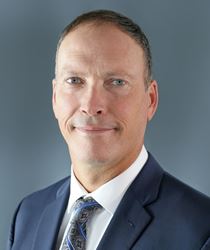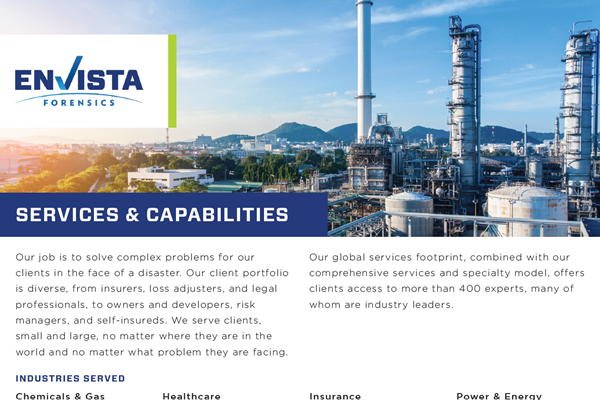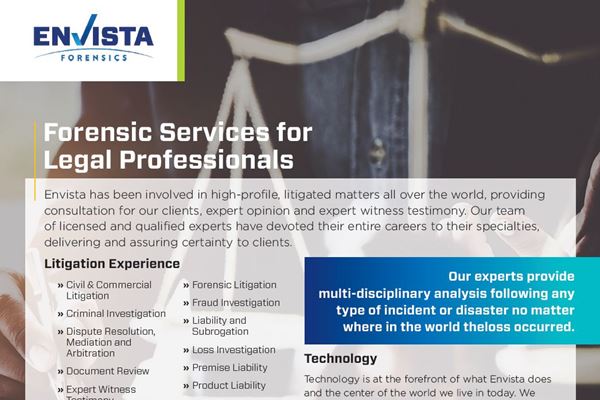9 Tips for Hiring Experts and Avoiding Gunslingers

Do you remember the movie The Good, the Bad and the Ugly? If you don't, let's just say the movie plot, like that of many other prototypical "spaghetti westerns," involved someone hiring a bad gunslinger to either run people out of town or off lucrative land just to suit their own interests. Those gunslingers were so-called "hired guns."
It's a relatively common term in certain industries. Lawyers, doctors, and forensic engineers or experts can all be considered a hired gun based on the circumstance. There is also more of a tendency to use (and believe) the use of a hired gun when it involves a large company versus an individual. For example, a corporate headquarters defending their company actions rather than individual "who was wronged." But, it's not really that black and white.
Mislabeling Experts
When it comes to forensic experts (engineers, scientists, fire investigators, and others) who perform work in the insurance industry, many are mislabeled as hired guns even when they are honest and unbiased. After all, someone hired them. But, when experts perform their investigations according to established protocols, for example, a fire investigator following NFPA 921 should only come to conclusions that favor their clients when the facts and evidence support those conclusions. Experts may routinely report technically unfavorable answers, and a large majority of clients appreciate this honest feedback as that information is helpful to manage their claim or loss accordingly.
Public Sector Investigators vs. Private Investigators
There is a tendency to believe that public sector investigators (government entity investigators) are not hired guns because they are full-time employees and therefore were not "hired." Some may believe, then, that the investigator would not be inclined to report answers in any favorable way. But, simply being a public sector investigator does not eliminate the potential for bias.
The primary issue all experts have to deal with when evaluating evidence is bias. Psychology experts have determined that biases exist due to many factors which are beyond the scope of this article. But, suffice to say, bias does in fact exist and in order for a forensic investigator to reduce the influence of those biases as much as possible, a number of steps should be followed.
9 Tips for Hiring Experts: How to Avoid the Gunslinger
- Firm leadership. It starts at the top. Leadership is likely the most important influence of a forensic firm regarding (and/or adopting) a hired gun mentality. If the firm has strong values that support objective research and a "tell it like it is" approach to their investigations, then individuals within the firm are less likely to feel the pressure to lean toward their client's interests and provide a report that may ignore facts and evidence.
- Consultation and peer review. In a firm that is filled with truth-seekers rather than hired guns, experts are more likely to consult one another on cases. When findings are formally reviewed by peers, it adds another dimension and degree of objectivity.
- No sugar coating. Many people love things that are sugar-coated, but sugar-coating a forensic investigation shouldn't be one of them. A client might like a favorable report, but after hundreds of thousands of dollars spent in litigation, losing at trial because they, in reality, did not have a good case, is not going to make anyone happy. It's always better if the client knows where they really stand, as it places them in a better position to settle their case and avoid the hassle, delays, and expense of a protracted legal battle.
- Can offer perspective on both sides. There is no better way for an expert to show they are only interested in the facts than by regularly being hired by both plaintiffs and defendants. It offers a perspective that is invaluable when it comes to reducing bias in investigations and reports.
- Uses accepted science, protocols, and methods. In the old days, an expert could get away with what was called junk science (or no science) as long as they were polished and could convince the court they were right. Now the courts are more likely to dismiss that expert, which could cost clients dearly in both a lost case, expert fees, and litigation costs.
- Find an expert who can communicate well. An expert should not be a smooth talker or someone that talks around the facts of the case. They should be able to simplify the science and the evidence to make it easily understood by the court.
- Has appropriate qualifications. This does not mean that they need to have a Ph.D., they simply need to have the qualifications required to opine on the subject matter. A Ph.D. structural engineer opining on a corrosion failure is no better than a materials technologist opining on a bridge design.
- Review past trial history. Be wary of experts whose evidence is consistently not accepted by the courts. Every expert has a bad case, for many reasons, but if there are many such cases, the link shouldn't be ignored.
- Check with others in the region. See if others have used a particular expert and what their opinion was related to that expert. In some regions, the pool of experts is small and the reputation of the expert may be known to other local insurers, independent adjusters, or lawyers. Ask if the expert has ever been disciplined by their professional association and if so, is it relevant to your case? Be sure to check with a number of people, as similar to expert biases, reviewer biases also exist for a number of reasons.
In the future, when you are looking to hire an expert, be wary of the slick-talking gunslinger. They may present facts favorably, but that may be detrimental in the long run. Just because they are part of an organization doesn't mean they are impartial. Review qualifications and trial history, and verify that the expert is using accepted science, methods, and protocols that will stand up in court.
Our experts are ready to help.




